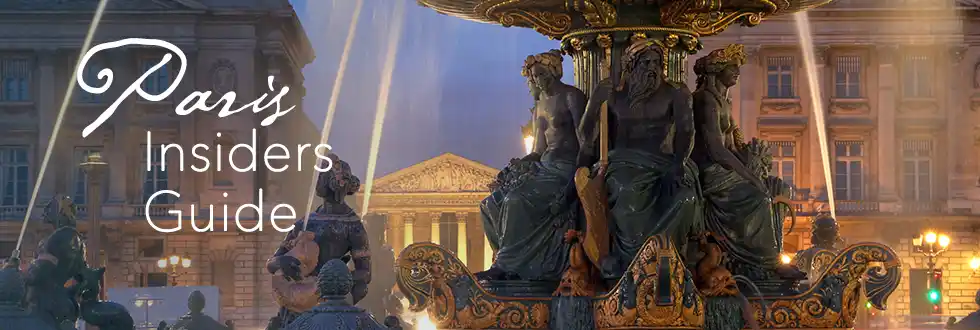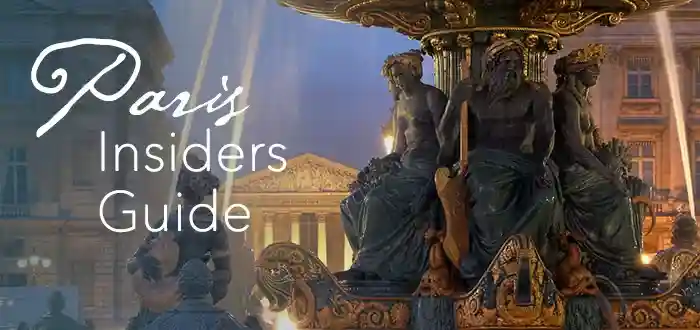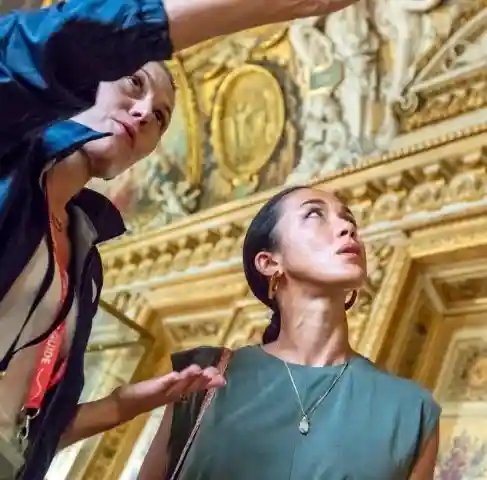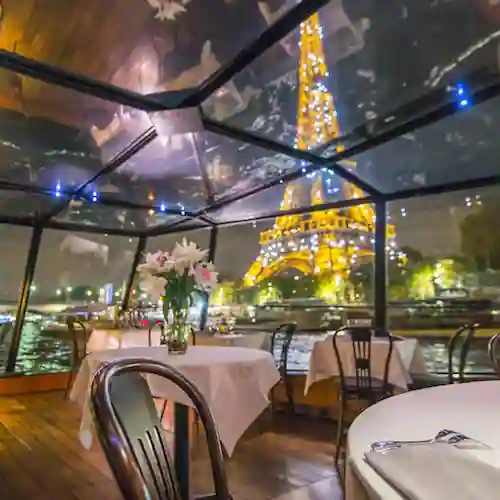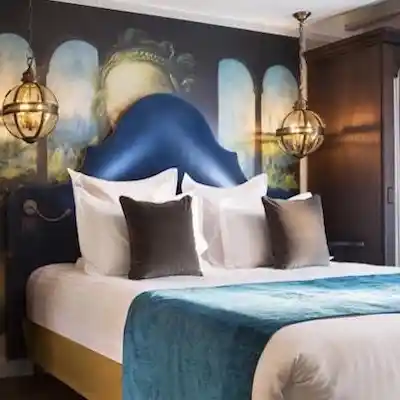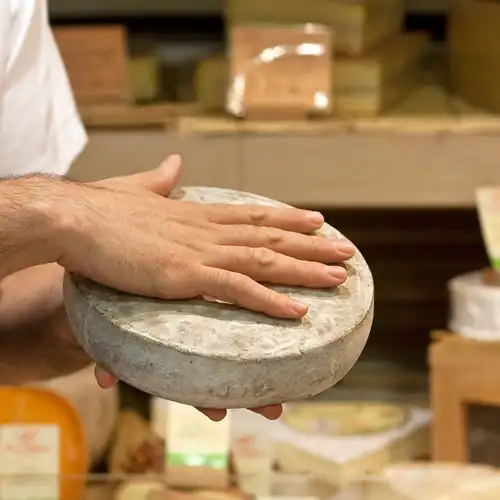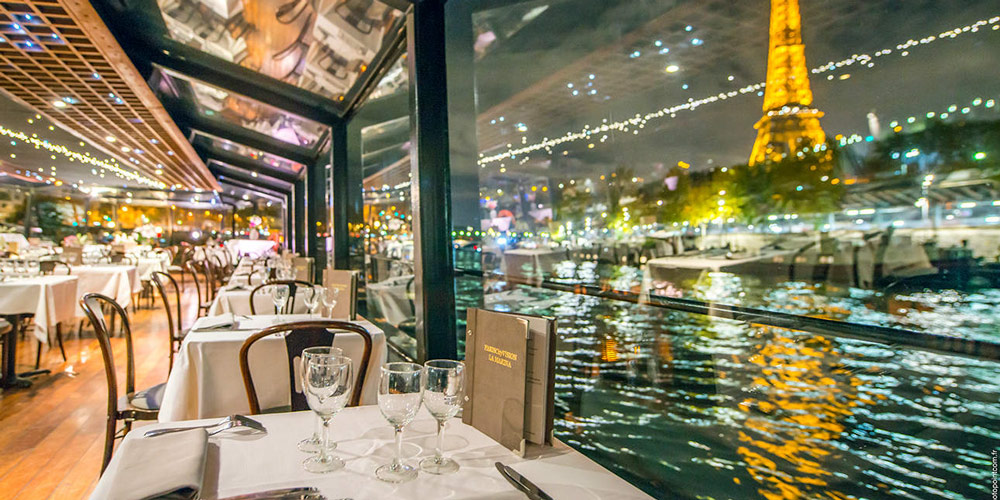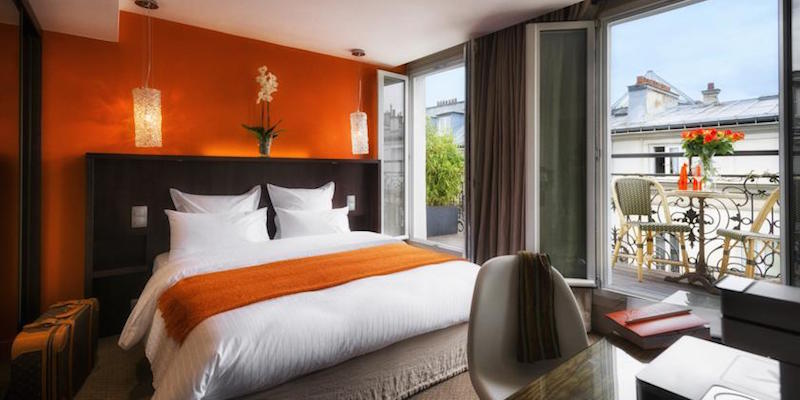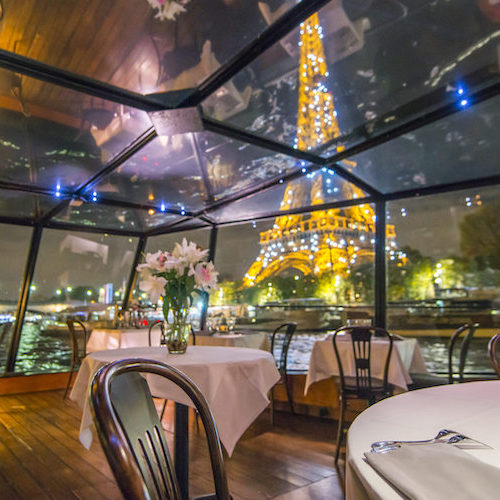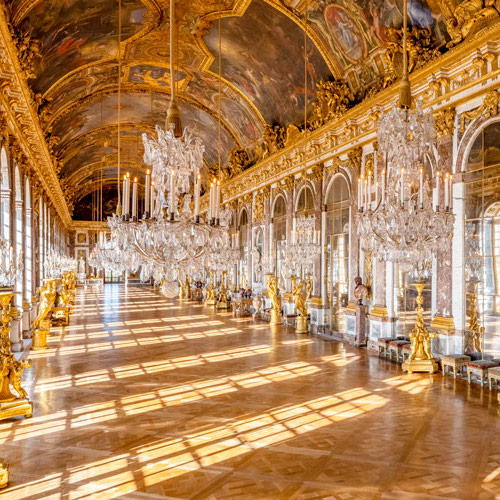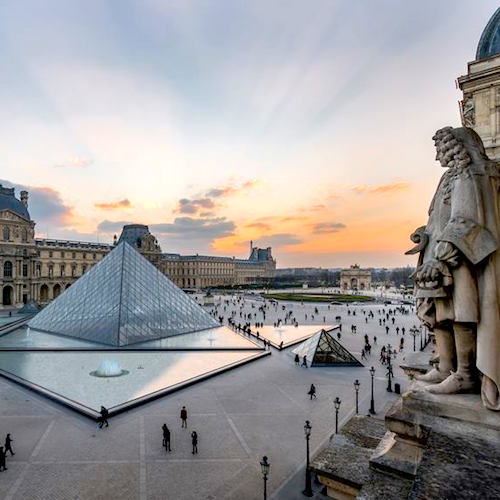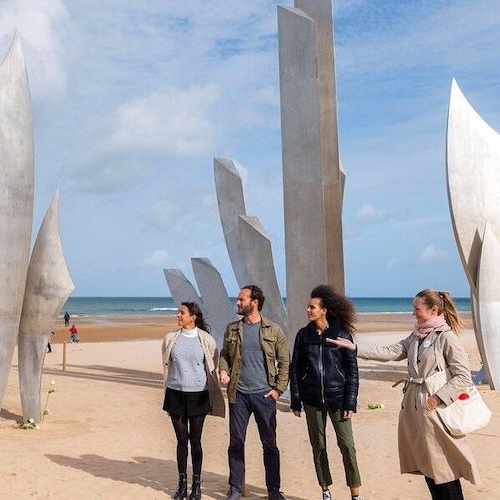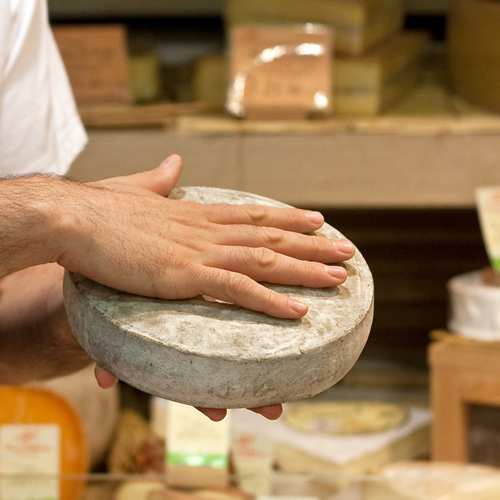Loire Valley Day Trips from Paris – The Splendor Of Castles + Wine
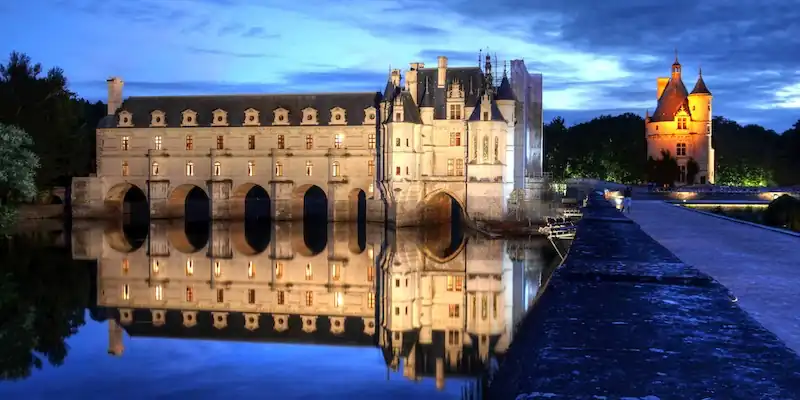 Chateau de Chenonceau spanning the river Cher in the Loire Valley
Chateau de Chenonceau spanning the river Cher in the Loire Valley
A Loire Valley day trip from Paris is like stepping into a storybook — a day of Renaissance châteaux, riverside villages, and vineyards that stretch to the horizon. In just a few hours, you trade the buzz of Paris for the calm rhythm of the French countryside.
A guided Loire Valley tour is the perfect blend of history, architecture, and wine — all in a single unforgettable day. Our recommended tours from Paris combine luxury coach or small-group travel with expert narration, hassle-free castle entry, and wine tastings in atmospheric cellars. You visit the lavish Château de Chambord, wander the gardens of Chenonceau, and taste the vintages that define the region known as "Garden of France".
![]()
Discover What's On When You're Here...
• January... |
• February... |
• March... |
• April... |
• May... |
• June... |
• July... |
• August... |
• September... |
• October... |
• November... |
• December... |
Discover What's On When You're Here
• January...
|
• February... |
• March... |
|---|---|---|
• April... |
• May... |
• June... |
• July... |
• August... |
• September... |
• October... |
• November... |
• December... |
Most Popular Guided Loire Valley Day Tours from Paris
1. Loire Valley Castles Tour with Wine Tasting
- Visit two or three of the Loire's most famous châteaux, including guided tours inside
- Enjoy a tutored wine tasting of regional reds and whites
- Transportation by comfortable coach; expert English-speaking guide
- Lunch available at a charming local restaurant
- 👉 Book Castles & Wine Tour →
2. Small-Group Loire Valley Castles Full-Day Tour
- Intimate van setting with hotel pick-up
- A small group of travelers provides personal attention
- Explore Chambord, Chenonceau, and Amboise with tickets and time to wander gardens
- Optional tastings and local shopping in storybook villages
- 👉 Book Small-Group Full-Day Tour →
3. Full-Day Loire Valley Wine Tour with Lunch
- Discover Vouvray and Chinon, two of the valley's most celebrated wine regions
- Tours of local vineyards and barrel cellars
- Guided tastings at each stop
- Three-course lunch included at a vineyard estate
- 👉 Book Private Day Trip to Champagne →
The Top Loire Valley Day Trips From Paris
Loire Valley Castles Tour + Wine Tasting
 One of the most magnificent castles in the Loire: Chateau de Chambord
One of the most magnificent castles in the Loire: Chateau de Chambord
The day begins in Paris, where a comfortable coach whisks you to France's royal playground. Soon, the towers of Château de Chambord rise from the mist — a blend of art, power, and architecture. Your guide leads you through its grand staircase, designed by Leonardo da Vinci, explaining how the château became a stage for royal ambition.
Then comes Chenonceau, the "Ladies' Château", with arches stretching over the River Cher. Here, history belongs to the women who shaped it — queens, rivals, and visionaries who turned elegance into strategy. The gardens are immaculate, the stories even better.
Between castles, you pause for a Loire Valley wine tasting, sampling the region's crisp whites and soft reds. It's a day where history, design, and the good life all share a table.
Grand Châteaux, Royal Stories & Local Wines
At A Glance
⭐ Rating: 4.9/5
🕑 Duration: 12 hours
🚐 Includes: Round-trip coach, guided castle tours, wine tasting, optional lunch
🏰 Castles: Chambord, Chenonceau (sometimes Cheverny or Amboise)
🍷 Best for: First-time visitors, castle lovers, and anyone seeking a classic châteaux tour
👉 Booking: Loire Valley Castles Tour →
Small-Group Loire Valley Castles Full-Day Tour
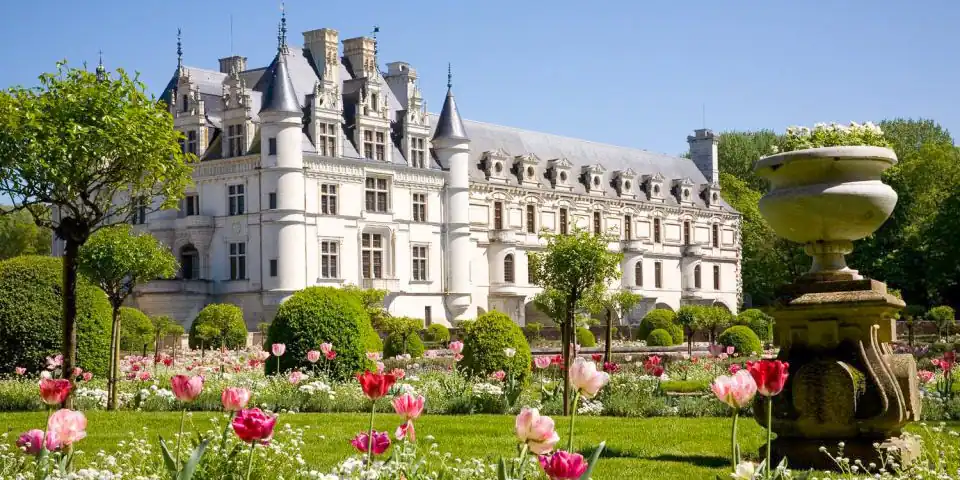 Chateau de Amboise, Leonardo da Vinci's final home
Chateau de Amboise, Leonardo da Vinci's final home
Forget the headsets and queues — this small-group Loire Valley day tour from Paris keeps things personal from start to finish. You're picked up at your hotel and set off in a comfortable minivan with a handful of fellow travelers and a guide who actually knows your name by lunchtime.
The route winds through the region's most dazzling châteaux: Chambord, a dizzying masterpiece of Renaissance engineering; Chenonceau, where art meets intrigue over the river; and Amboise, Leonardo da Vinci's final home. Each stop feels unhurried, every story tailored to the group.
There's time for a relaxed cafe lunch, a stroll through a local market, or an impromptu wine stop if curiosity calls. This Loire Valley castle tour Paris turns a long day into something easy and immersive — like traveling with a historian friend who happens to have great taste.
A Personal Journey Through Royal France
At A Glance
⭐ Rating: 4.8/5
🕑 Duration: 12 hours
🚐 Includes: Small-group minivan, guide, castle entry, flexible itinerary
🏰 Castles: Chambord, Chenonceau, Amboise
🍷 Best for: Couples, families, and travelers who prefer a tailored guided tour
👉 Booking: Small-Group Loire Valley Tour →
Full-Day Loire Valley Wine Tour with Lunch
 A guided tour of Loire aging caves, photo ADT by J.C. Coutland
A guided tour of Loire aging caves, photo ADT by J.C. Coutland
This Loire Valley day trip is all about balance — a day that pairs grand châteaux with the simple pleasures of wine, food, and countryside. As you leave Paris and head south through green fields the spires of Chambord or Chenonceau appear, each one a masterpiece of French style. As you wander the castles, your guide shares stories of royal ambition and Renaissance artistry.
Midday slows the pace with a relaxed three-course lunch at a vineyard estate or country inn. Regional cheeses, roasted meats, seasonal produce will be served — all paired with wines from the surrounding terroir.
The afternoon unfolds through echoing halls, manicured gardens and the vineyards of Vouvray and Chinon. Winemakers welcome you into their limestone cellars as you taste the wines of the region.
As you head back to Paris the sun has dipped low over the Loire, casting everything in soft golden light. This guided Loire Valley tour from Paris blends history, architecture, and flavor in perfect measure — a day that lingers long after you've returned to the city.
Vineyards, Chateaux & A Taste of the Good Life
At A Glance
⭐ Rating: 4.8/5
🕑 Duration: 12 to 13 hours
🚐 Includes: Transport, guide, château visits, vineyard/cellar tours, lunch and tastings
🍷 Highlights: Visit three Loire Valley wines estates in Vouvray, Bourgueil and Chinon
🇫🇷 Best for: Anyone who loves good wine, great stories & a day straight out of French history.
👉 Booking: Loire Valley, Wines & Lunch →
What's Great About Guided Loire Valley Day Trip?
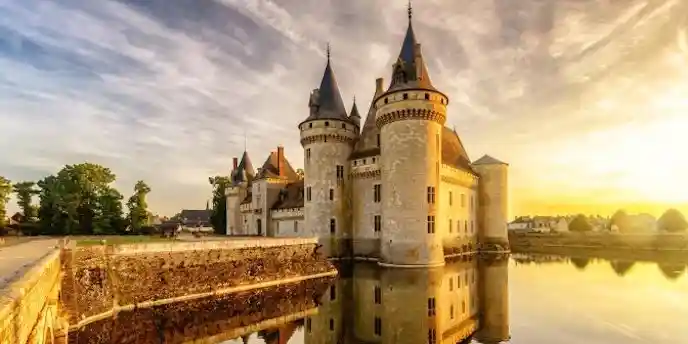 Chateau de Chenonceau, sunset view
Chateau de Chenonceau, sunset view
The Loire Valley feels instantly different from Paris — quieter, greener, and more generous with its horizons. As you approach, the countryside opens up to rolling fields, sleepy riverside towns, and the occasional turret glinting in the distance.
Loire Valley day trips seem to follow a natural rhythm: a morning castle or tasting, a relaxed lunch, then another highlight before heading back toward the capital. It's not rushed — just enough structure to keep things smooth and enough freedom to let the day unfold.
Guides share just the right mix of history and humor, balancing royal tales with glimpses of everyday life in the region. By sunset, you understand why this stretch of France became known as the country's playground — elegant, unhurried, and impossible not to love.
.Experience France – Just Beyond Paris
Every direction in France from Paris reveals food, art, and architecture you won't want to miss — these day trips are the key to your next memory.
![]()
|
Paris Dinner Cruises on the Seine Dine in style as you glide past the Eiffel Tower, Notre-Dame, and the Louvre on a magical Seine River cruise. Gourmet food, champagne, and Paris lit up at night – it’s unforgettable. |
|
Paris Dinner Cruises on the Seine Dine in style as you glide past the Eiffel Tower, Notre-Dame, and the Louvre on a magical Seine River cruise. Gourmet food, champagne, and Paris lit up at night – it’s unforgettable. |
FAQs About Loire Valley Day Trips
HOW FAR IS THE LOIRE VALLEY FROM PARIS AND HOW DO I GET THERE?
The Loire Valley is about 2 to 2.5 hours from Paris by coach or minivan. All of our recommended Loire Valley tours from Paris include transportation.
WHICH CASTLES CAN I SEE ON A DAY TRIP FROM PARIS?
Chambord and Chenonceau are almost always included on a guided tour (except for the wine-focused tour). You may also visit Amboise or other châteaux depending on your chosen tour.
ARE LOIRE VALLEY DAY TRIPS FROM PARIS GOOD FOR WINE LOVERS?
Yes! Most tours include at least one tasting of the local wines. If you want to go deeper into wine, this tour features guided wine tastings, cellar visits, and vineyard tours as part of the day's highlights.
WHY ARE SMALL-GROUP LOIRE VALLEY TOURS BETTER?
Small-group tours offer more personal attention, flexible pacing, and direct access to your guide — all in all a friendlier experience more targeted to your interests.
Continue Your Paris Adventure
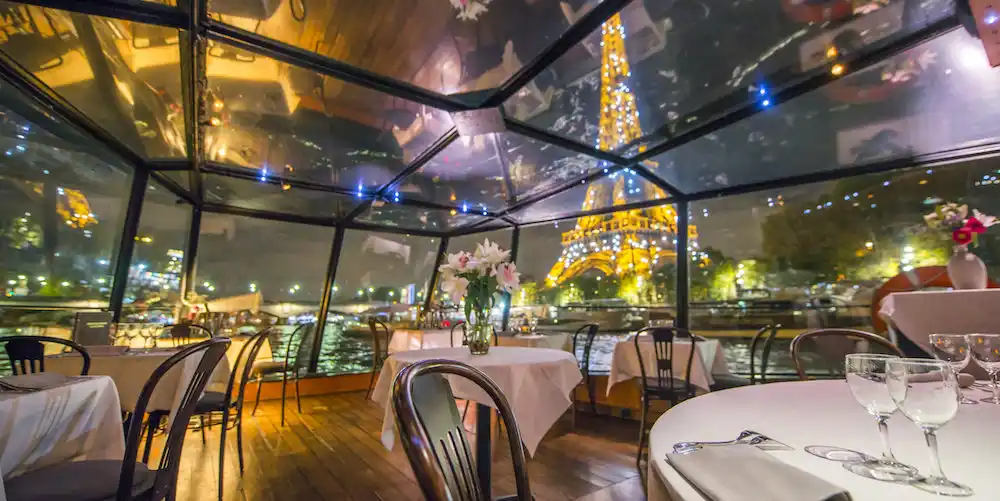 Toast Paris on a Seine River Dinner Cruise
Toast Paris on a Seine River Dinner Cruise
Ready to create another perfect Paris day? These experiences will do the trick..
🎨 Skip-the-Line Louvre Masterpiece Tour →
🗼 VIP Tours of the Eiffel Tower →
🚢 Toast Paris on a Seine River Dinner Cruise →
👑 A Royal Day at Versailles →
⚜️ City of Paris Website: News & Happenings →
![]()
|
Browse our hand-picked Paris hotel deals with real-time discounts of up to 20%. Stay in the Marais, Saint Germain, the Latin Quarter, the Left Bank near the Eiffel Tower… every arrondissement is on the list. |
|
Browse our hand-picked Paris hotel deals with real-time discounts of up to 20%. Stay in the Marais, Saint Germain, the Latin Quarter, the Left Bank near the Eiffel Tower… every arrondissement is on the list. |
